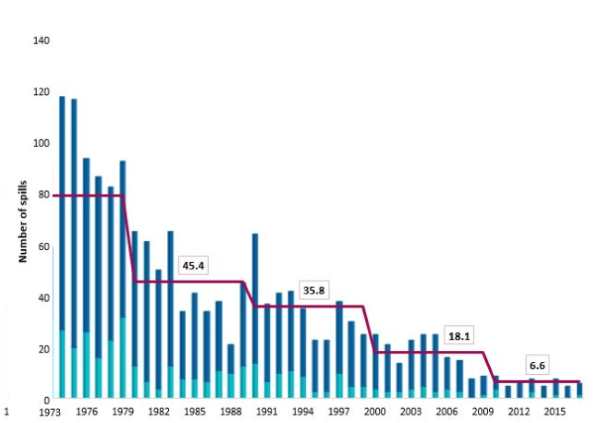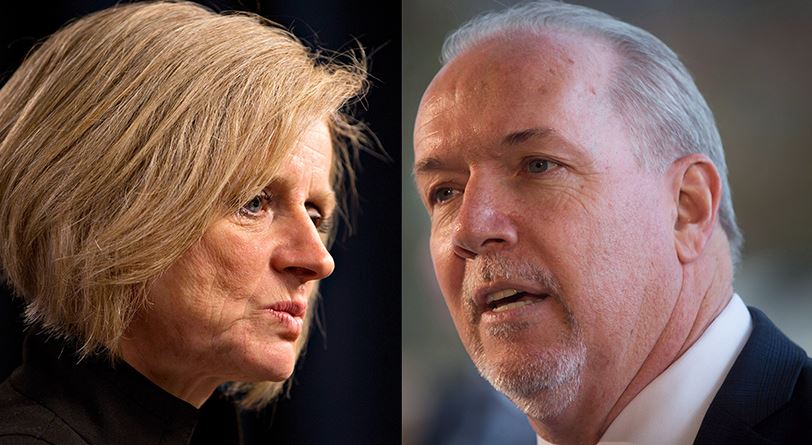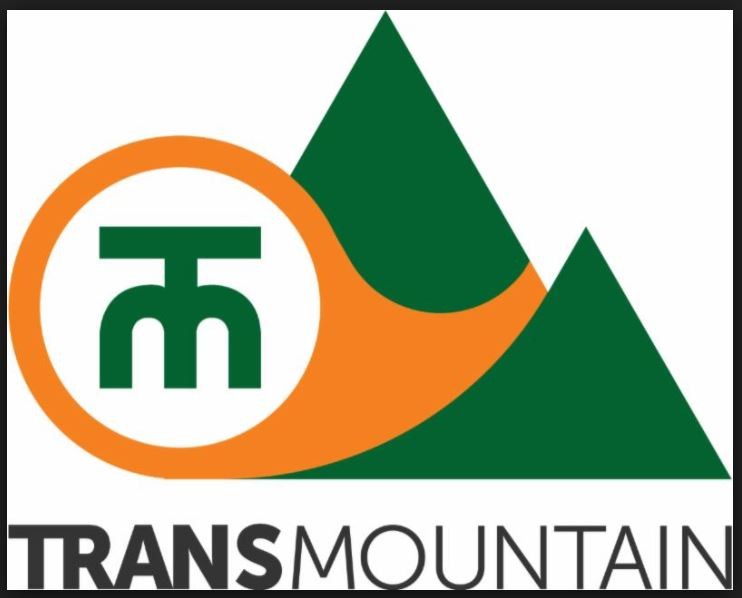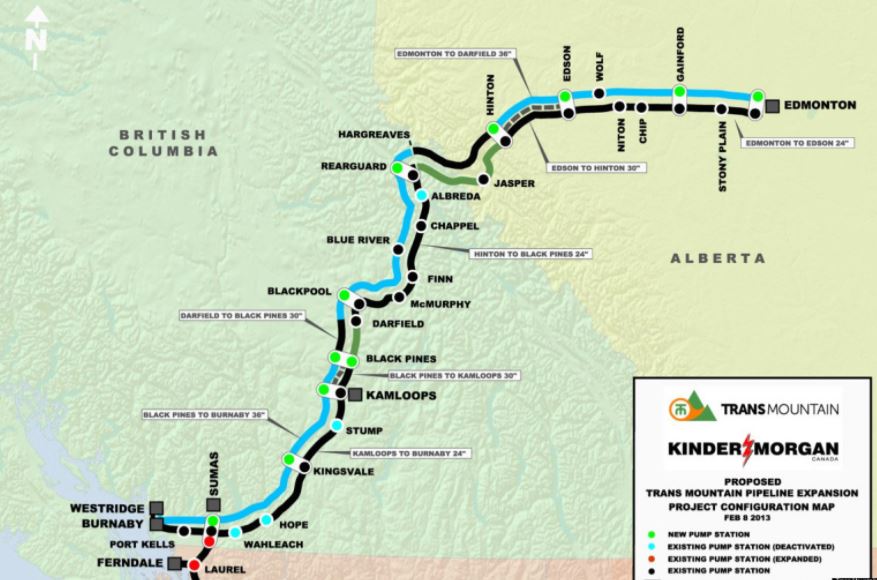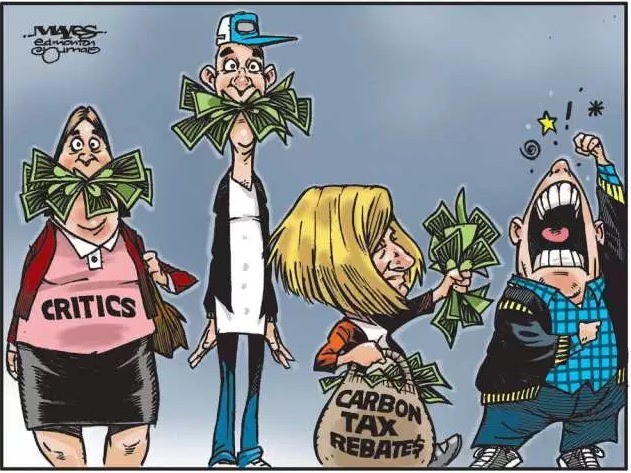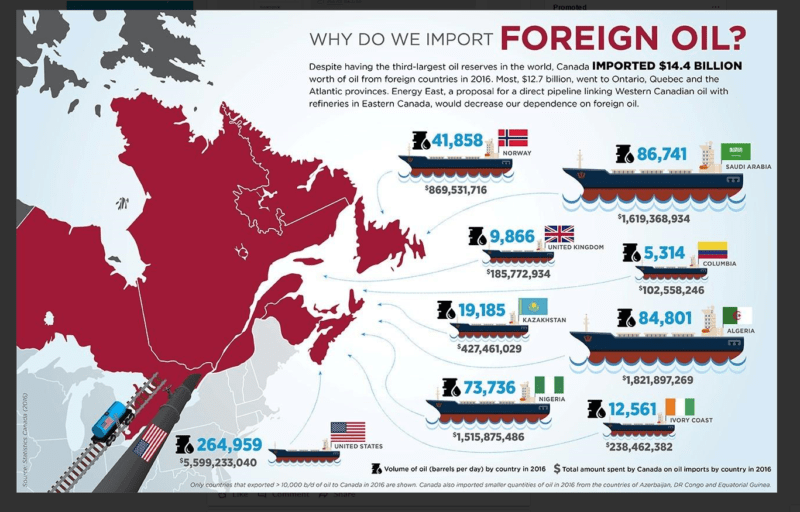Are Oil Tanker Spills Getting Worse? Spill Statistics From 1970 to 2017
You can draw your own conclusions from the charts below but it is not debatable that Oil Tankers used to get into a lot of serious accidents and spill a huge amount of oil. That is just not the case today.
As you can see in the chart below, the oil tanker business has become dramatically safer in the last 35 years since tanker traffic became popular in the early 1970’s:
The 2017 the tanker oil spill numbers look very similar to the 2010/11 numbers with:
- two large spills (>700 tonnes) both of which occurred out at sea
- four small spills (<700 tonnes) with only one occurring near a harbor and was the result of an avoidable collision
If you do the math, this calculates to oil tanker accidents have been reduced 92% while there has been a 55% increase in their use. That means late 2010’s oil tanker traffic is about 20 times less likely to have a spill than they were in the early 1970’s.
